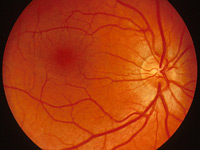Vision Science/Clinical Optom - 3182
Program Summary
Faculty: Faculty of Science
Contact: Optometry and Vision Science
Campus: Sydney
Career: Undergraduate
Typical UOC Per Semester: 24
Min UOC Per Semester: 6
Max UOC Per Semester: 24
Min UOC For Award: 240
UAC Code: 429750
Domestic Entry Requirements: See Domestic Entry Requirements
International Entry Requirements: See International Entry Requirements
View program information for previous years
Program Description
Optometry includes the diagnosis and management of ocular disease, the dispensing of spectacles and contact lenses, the management of people with special needs (children, low vision), sports vision and vision in the workplace. Graduates of this program will be able to register as an optometrist in Australia. The degree is also recognised in New Zealand and in most parts of Asia. Job opportunities in this field are excellent and are expected to remain excellent given the high visual demands in the modern computer-based workplace, and the ageing population in Australia.
Upon completion of the Master of Clinical Optometry degree, students will be allowed to apply for registration with the Optometry Board leading to the practice of Optometry in Australia, New Zealand and most parts of Asia.
Program Objectives and Graduate Attributes
Students who have completed the degree will be able to:
- Articulate advanced and integrated understanding of a complex body of knowledge in Vision Science and Optometry, and their areas of professional practice.
- Demonstrate an awareness of national and international issues within the disciplines of Vision Science and Optometry, and the impact they may have on the delivery of eye care to the community.
- Use expert, specialised cognitive and technical skills in Optometry to independently and critically analyse and synthesise complex information, problems, concepts and theories.
- Understand the scientific research process and ability to undertake independent research in Vision Science and Optometry.
- Apply established theories and concepts to a body of knowledge, and the interpretation and communication of knowledge and ideas to specialist and non-specialist audiences.
- Apply knowledge and skills in Optometry to work in ophthalmic industry and or as an autonomous practitioner.
- Demonstrate effective and professional skills in communicating information and judgements to patients and other health care providers.
- Apply expert knowledge of ocular diseases and ocular therapeutics to the treatment and management of anterior eye diseases, foreign body removal and glaucoma co-management.
Program Structure
Semester 1
- BABS1201 Molecules, Cells and Genes (6 UOC)
- MATH1031 Mathematics for Life Sciences (6 UOC) or MATH1131 Mathematics 1A (6 UOC)* or MATH1141 Higher Mathematics 1A (6 UOC)*
- VISN1111 Geometrical and Physical Optics (6 UOC)
- CHEM1031 Higher Chemistry A: Atoms, Molecules and Energy (6 UOC)
Semester 2
- CHEM1829 Biological Chemistry for Optometry Students (6 UOC)
- VISN1101 Seeing the world: Perspectives from Vision Science (6 UOC)
- VISN1221 Visual Optics (6 UOC)
- PHYS1111 Fundamentals of Physics (6 UOC) or PHYS1121 Physics 1A (6 UOC) or PHYS1131 Higher Physics 1A (6 UOC)
Semester 1
- ANAT2111 Introductory Anatomy (6 UOC)
- OPTM2133 The Clinical Environment (6 UOC)
- PHSL2101 Physiology 1A (6 UOC)
- VISN2111 Ocular Anatomy and Physiology (6 UOC)
- OPTM2233 Optical Dispensing (6 UOC)
- PHSL2201 Physiology 1B (6 UOC)
- VISN2211 Function of the Visual System (6 UOC)
- General Education (6 UOC)
Semester 1
- General Education (6 UOC)
Stage 4
Summer Semester
- OPTM6400 Preclinical Practic (6 UOC)
- OPTM6411 Contact Lenses (6 UOC)
- OPTM6412 Clinical Optometry 4A (6 UOC)
- OPTM6413 Anterior Eye Therapeutics (6 UOC)
Semester 1
- OPTM8511 Clinical Paeds, LV and CV (6 UOC)
- OPTM8512 Clinical Optometry 5A (6 UOC)
- OPTM8513 Clinical Ocular Therapy 5A (6 UOC)
- OPTM8518 Research Project A (6 UOC)
- OPTM8521 Clinical Contact lens (6 UOC)
- OPTM8522 Clinical Optometry 5B (6 UOC)
- OPTM8523 Clinical Ocular Therapy 5B (6 UOC)
- OPTM8528 Research Project B (6 UOC)
Participation and Enrolment Requirements
- Criminal Record Check (for placement).
- International students need both the Australian check as well as a police certificate from their home country or any country in which they have been a citizen or permanent resident since turning 16 years of age. "
General Education Requirements
Any course defined as a 'Science' course in Table 1 of the 3970 Bachelor of Science program cannot be taken as General Education. Additionally, GENS courses cannot count as General Education for Science students. Any exceptions to these rules must be approved by the Associate Dean (Academic Programs) or nominee.
Academic Rules
- Students enrolled in the Bachelor of Vision Science / Master of Clinical Optometry must complete a minimum of 240 UOC for the award of the degree.
- Students must follow the program of study as outlined in this Handbook and defined under the Program Structure above.
- No student may commence level II courses until 48 UOC of level I courses have been successfully completed.
- Students may commence level III courses upon successful completion of 48 units of credit of level II courses.
- Study Load: This is an intensive full-time program. Only in exceptional circumstances will students be allowed to enrol in a reduced program for a Stage.
- Students enrolled in the Bachelor of Vision Science / Master of Clinical Optometry must maintain an overall CREDIT average (65%) at the end of the Bachelor of Vision Science component of the program to progress to the Master of Clinical Optometry. Students who do not meet this requirement are expected to exit the program with a Bachelor of Vision Science degree.
- Students enrolled in the Master of Clinical Optometry will be required to complete 60 days of work experience. The cost associated with this work experience will be met by the student.
- This program includes placements in Health Facilities in Australia, private practice and the UNSW Optometry Clinic. In order to attend these placements, students will need to complete a criminal record check and comply with Health Facility’s immunisation and blood borne viruses policies.
Fees
Assumed Knowledge
Future Pathways









